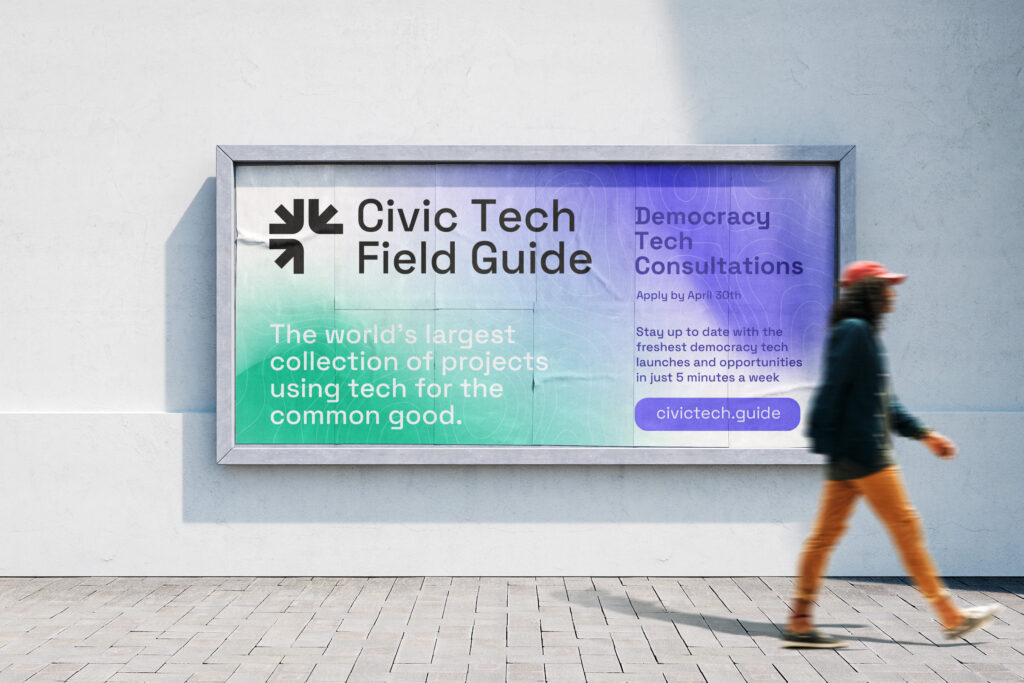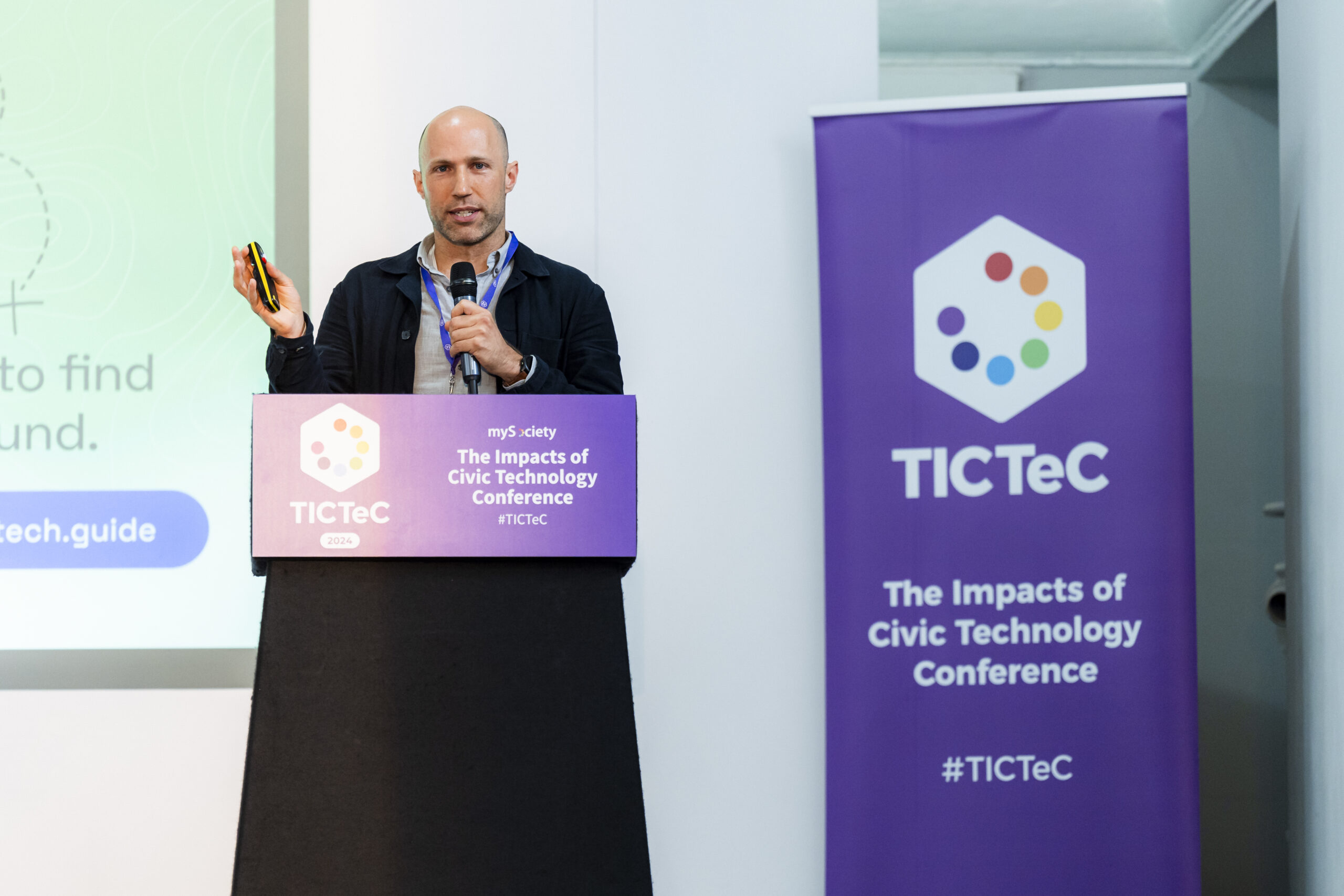From The BLOG
Common civic tech needs across global contexts: Insights from our pro bono Democracy Tech ConsultationsOver the period of a year, The Civic Tech Field Guide team met with democracy activists working in countries whose democracies are under active threat. A surprising finding was the overlap in these groups’ needs. What resources can begin to address these needs, and what more can we, as a field, do to help?
A write-up of my presentation at the 2024 Impacts of Civic Tech Conference in London.
Over the period of a year, The Civic Tech Field Guide team met with democracy activists working in countries whose democracies are under active threat. A surprising finding was the overlap in these groups’ needs. What resources can begin to address these needs, and what more can we, as a field, do to help?
Watch the talk
Talk Write-up
As the curator of the Civic Tech Field Guide, our mission since 2016 has been to foster and grow the field of civic tech and democracy innovation. This work is vital because, if, as Enrique Bravo-Escobar argued in his remarks at TICTeC, democracy’s house is on fire, then it’s absolutely critical that we become proficient in firefighting.
Our approach involves cataloging who’s doing what in the field, surfacing the best resources, and helping people find the tools, data, and partners they need to be effective. We have crowdsourced and meticulously categorized an open inventory of over 9,000 projects and organizations across areas such as participatory democracy, govtech and elections, advocacy, open data, journalism, and related fields like ethical and responsible tech.

Pro Bono Democracy Tech Consultations
Recently, we conducted pro bono democracy tech consultations, funded by the National Endowment for Democracy (NED). We issued an open call, received 32 applications, and evaluated them using a rubric that scored applicants by the degree of freedom in their country, their readiness for our assistance, and our expected ability to help with their identified challenges. We prioritized activists working in global majority and less-free countries, selecting ten organizations based in countries such as Venezuela, Nepal, Colombia, Lebanon, Tanzania, Bangladesh, and Malaysia.
The average Freedom House Global Freedom Score of these organizations’ countries was 54 out of 100. The cohort included people working in democracies under threat, and governments that can’t be considered democracies at all. These groups range from formal NGOs to grassroots efforts, funders, tech platform builders, and politically at-risk media publications.
Key Findings
Over the past year, we met with these democracy activists to understand their needs, conducted research using the Civic Tech Field Guide, and identified existing resources that might be helpful to their efforts. It was rewarding for me personally, as I could see the immediate impact of our recommendations on the efficacy of these organizations. The Civic Tech Field Guide is primarily a digital resource, so I don’t always get to see the concrete value people get from it (unless they share their story with us).
A surprising finding in the program was the commonality of needs across these diverse groups. Despite being in different countries, regions, and sectors, with different organizational sizes, their needs converged on several key areas:
1. Funding
Perhaps not surprising, but there is a consistent need for ongoing, stable support focused on organizational priorities rather than funders’ trend-chasing and priorities.
Example resource: We offer a resource in the form of our open community calendar, where we review heaps of newsletters weekly to extract relevant fundraising deadlines and grant opportunities. These opportunities are included in our weekly email newsletter, available on our website, and shared on social media.
2. Digital Security
Concerns about data security and the need for robust digital security plans are paramount. Cybersecurity has become essential, particularly for those working for democracy in less-free countries. These groups face internet shutdowns, web traffic surveillance, threats to their physical office spaces and personnel, device and database hacks, and targeted harassment.
Example resource: We have a comprehensive cybersecurity section in our guide, which includes over two hundred civil society-focused VPNs, DDoS prevention programs, and free critical support clinics for those under attack.
3. Partnership and Networking
Participants highlighted the need for partnerships and spaces for peer learning with other organizations. This need was evident in multiple global field scan projects I’ve conducted recently, including this project as well as similar global research work with Code for All. In both projects, peers around the world emphasized the necessity for finding time to share effective strategies and tactics.
This finding has directly led to initiatives like mySociety’s new Communities of Practice, which we are collaborating on.
Example resource: The Civic Tech Field Guide now includes not just tools but also over 1,000 of the organizations that build and use them. We have already sparked connections and partnerships between organizations seeking each other on our platform.
4. Public Engagement
Our participants asked us for tools and strategies for effective public engagement. This area has always been a core focus of the Civic Tech Field Guide. Examples include social media monitoring tools to gauge community sentiment, and platforms that enable elected officials to communicate with constituents.
Example resource: People Powered’s Guide to Digital Participation Platforms, which I co-authored, is a valuable resource in this area.
5. Capacity Building
Commonly shared needs for capacity building included digital literacy, conflict resolution, and media engagement. Many groups require good open-source CRMs and tech platforms that support local languages, for example.
They also nearly universally need contacts at the big tech platforms to help them respond when adversaries coordinate to get their content wrongfully taken down, or to harass them and their communities. Building bridges between civil society and tech product teams is essential, as demonstrated by the work of NDI. But recent layoffs by the big tech platforms have decimated the types of teams that may have acted as these liaisons in the past. Even well-networked organizations are left scrambling to find personal contacts to get a meaningful response from the platform giants.
Example resource: NDI’s Design 4 Democracy coalition works to get tech product teams to the table with democracy groups.
Reflections and Future Work
Our pro bono democracy clinic program was very well received, with participants giving it high scores for usefulness and the practical, realistic approach to addressing their needs. The resources we identified were highly valued, and many participants indicated they would consult the Civic Tech Field Guide again in the future. The relatively small amount of funding for this project allowed us to provide significant assistance, demonstrating a multiplying effect on the impact of the participants’ work.
Looking ahead, we recognize the need for funding to help participants actually implement recommendations, and to be able to provide more ongoing engagement and support.
As a field, we could get better at systematically identifying common needs, and then collectively addressing them. For example, a cohort of organizations is working together to invest in improving the open source Hypha grant application tool.
Developing this kind of common infrastructure to support extremely common needs would, in my opinion, would create far more positive impact than many of the other trends funders chase. We encourage funders and supporters to consider this approach, and please reach out to discuss potential collaborations.
THANK YOU to the organizations that participated in this program for their trust and collaboration. We look forward to continuing this important work and supporting the global civic tech community.
You can watch many of the other TICTeC sessions on YouTube thanks to the mySociety team.

